The G7 countries have long since lost their position as the leading economic powers. For some time now, India has had more economic power than Italy, Canada, and even the United Kingdom. China is number two, right after the US. When the G7 meet on Friday in Hiroshima, Japan, they will no longer be able to set the agenda in the way they could a few years ago. Instead, they are driven by the issues other powers set for them: Russia and China.
German Chancellor Olaf Scholz and the other G7 heads of government are looking for ways to further increase the sanctions pressure on Moscow to prevent third countries, above all China, from profiting further. In light of the tensions over the Taiwan conflict, another pressing question is how the G7 members can become more independent of China, writes Michael Radunski.
Far more unity, on the other hand, can be found at the summit of the Central Asian states summoned by the Chinese leadership to Xi’an. It is the counter-summit to the G7. However, this meeting is not only aimed against the West, but also sends Moscow a message. China is poaching in Russia’s sphere of influence – and a weakened Putin is forced to watch helplessly, analyzes Joern Petring.
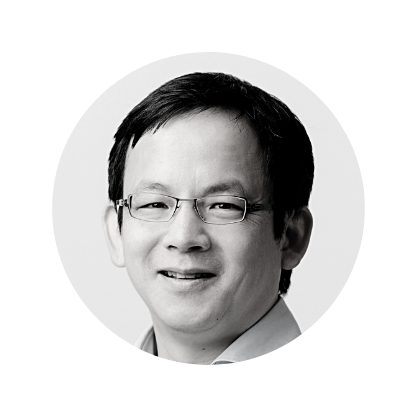
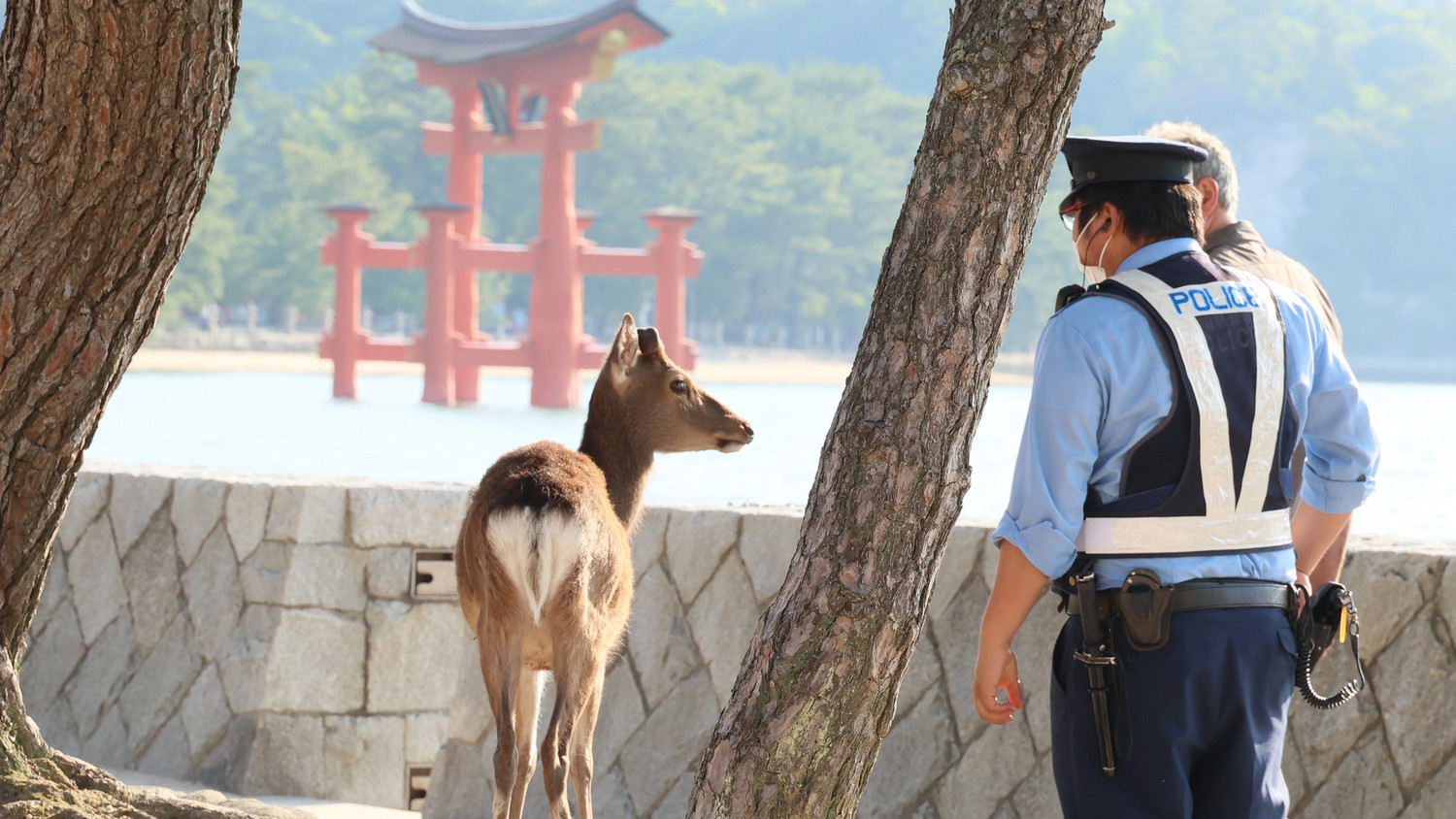
At the G7 summit in Japan, starting today, the Ukraine war will undoubtedly be an important topic. Its global consequences are far too far-reaching, after all. But when Japan’s Prime Minister Fumio Kishida welcomes his G7 colleagues from Germany, France, Great Britain, Italy, Canada and the United States in Hiroshima today, two other concerns will be on his mind: China’s military ambitions and its repeated attempts to enforce its goals through economic coercion.
Since Russia’s attack in February 2022, Kishida has warned that “Ukraine today could be East Asia tomorrow.” The situation surrounding Japan is getting increasingly tense. China is said to be making attempts to unilaterally change the status quo by force. What Kishida means by this is, above all, China’s claims over Taiwan and the South China Sea.
In response, Japan is currently undergoing its own “Zeitenwende”: Tokyo has presented a revised defense strategy, plans to double its defense spending over the next five years, and improve its military counter-attack capabilities – among other things, by purchasing Tomahawk cruise missiles. It is a fundamental turning point for a country that has been officially pacifist since its defeat in World War II.
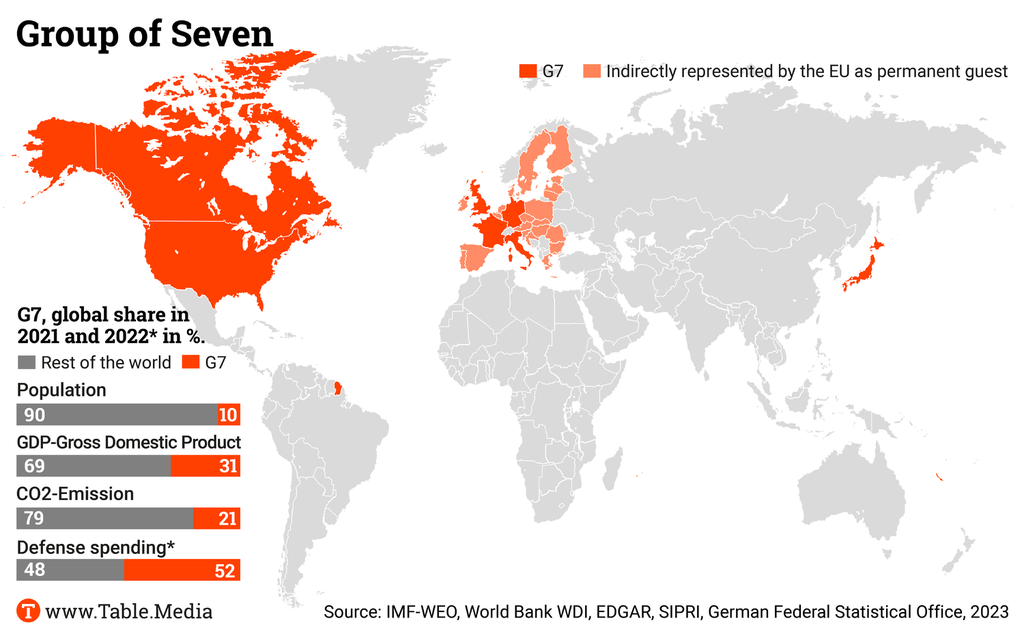
Japan supports the Western sanctions against Russia. In return, however, Japan must be able to rely on allies and like-minded countries when it comes to risks posed by China, Kishida demanded most recently in Washington.
But this is precisely where the West is divided over lately. While US President Joe Biden put an end to the decades-old American ambiguity and assured Taiwan of America’s military support in the event of a conflict, French President Emmanuel Macron surprised everyone during his visit to Beijing last month by saying that Europe should not allow itself to be “caught up in crises that are not ours.”
Accordingly, the President of the EU Commission tried to provide clarity before the G7 summit. “We will reaffirm our unwavering commitment to peace and stability in the Taiwan Strait,” Ursula von der Leyen said at the start of the week. Japan will work towards a clear statement at the summit.
There is also disagreement on the second issue – China’s economic pressure against other countries. “We have seen attempts of economic coercion – for example, China towards Lithuania. We have seen similar practices vis-à-vis Japan and Australia,” von der Leyen said. Here, too, there is a need to increase “resilience,” in other words, the ability to withstand economic pressure from China. The new magic word is de-risking.
The United States, on the other hand, is taking a much stricter line toward China. In Washington, the pendulum is clearly swinging more toward de-coupling. However, the Biden Administration has recently demonstrated more understanding for Europe’s position. Washington is only slowly realizing how vital close economic relations with China really are for many European countries. The Covid pandemic, for example, has highlighted the dependence of German industry on supplies from China.
Apparently, the G7 in Japan is therefore planning to issue a separate declaration on economic security for the first time, in addition to the final communiqué of the main summit. In it, the participants want to commit themselves to “jointly deterring, responding to and countering economic coercion.” It is unlikely, however, that China will be explicitly mentioned in this declaration.
In any case, Beijing’s reaction to the G7 agenda was one of premature displeasure. “If the G7 Summit is to discuss response to economic coercion, perhaps it should first discuss what the US has done,” said a spokesperson for the Chinese Foreign Ministry.
The background is Washington’s extensive export controls, which the US uses to try and hinder Chinese companies from acquiring cutting-edge technologies and high-performance chips. The US is exerting significant pressure on Western companies, such as the Dutch chip manufacturer ASML to join US sanctions.
China regards the G7’s criticism as “ideology-driven, unjustified, offensive, and excessive,” Wang Zichen told Table.Media. In this way, the G7 is undermining its own claim, according to the researcher from the Center for China and Globalization (CCG) in Beijing. “Beijing increasingly sees G7 as similar to Five Eyes, the QUAD, and AUKUS – small, exclusive ‘circles’ led by the US to contain China.”
Wang warns of potential consequences – for Taiwan, for example. “I think the likelihood of a military conflict in the Taiwan Strait has been exaggerated, which is counterproductive and risks becoming a self-fulfilling prophecy.” Toning down Western concerns and making more constructive remarks would do more to restore confidence in the stability of the Taiwan Strait, Wang urges.
Eberhard Sandschneider also is critical of the G7 summit agenda in Japan. “The G7 are running the risk of getting bogged down in their China criticism,” warns the political scientist. While it is right to name problems, they should not exhaust themselves in them, he added.
Instead, China should also be made offers. “Every speech talks about China as a partner in the fight against climate change,” says the partner of the consulting firm Berlin Global Advisors. However, there have been no concrete joint measures with China to date.
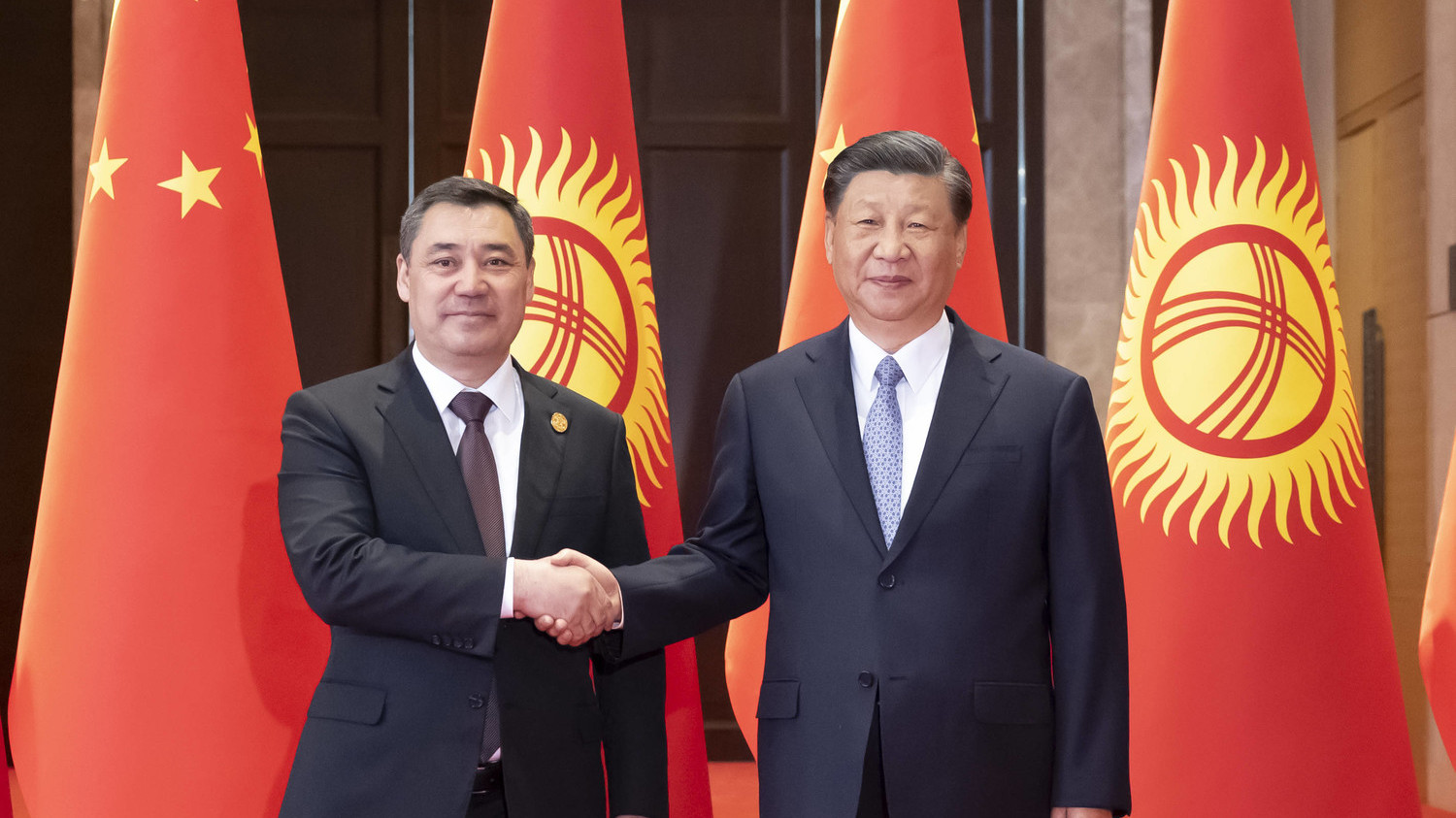
China has rolled out the red carpet in Xi’an for the Central Asian states of Kazakhstan, Kyrgyzstan, Tajikistan, Turkmenistan and Uzbekistan. President Xi Jinping welcomed the leaders of the five former Soviet states to a banquet Thursday to kick off a two-day summit. In the run-up, Xi held a series of talks with his guests. The main day of the summit is Friday.
While the G7 countries are bound to show unity against Russia and China at their meeting in Japan, the Chinese also demonstrate in Xi’an that they will not allow themselves to be isolated. They are forging their own discussion formats in which the West is not calling the shots. They want to create structures that represent an alternative to what the Chinese consider to be the Western-dominated world order.
While the so-called “C+C5” format with the states of Central Asia has already existed since 2021, it is now being held face-to-face for the first time since the end of the pandemic. The timing for the charm offensive in Xi’an could hardly be better for Beijing.
Moscow still plays an important role in the region, but the Central Asian states are increasingly willing to align themselves more closely with China. After all, Beijing can offer what Russia has only been able to provide to a limited extent since the start of the war in Ukraine at the latest: A lucrative economic cooperation.
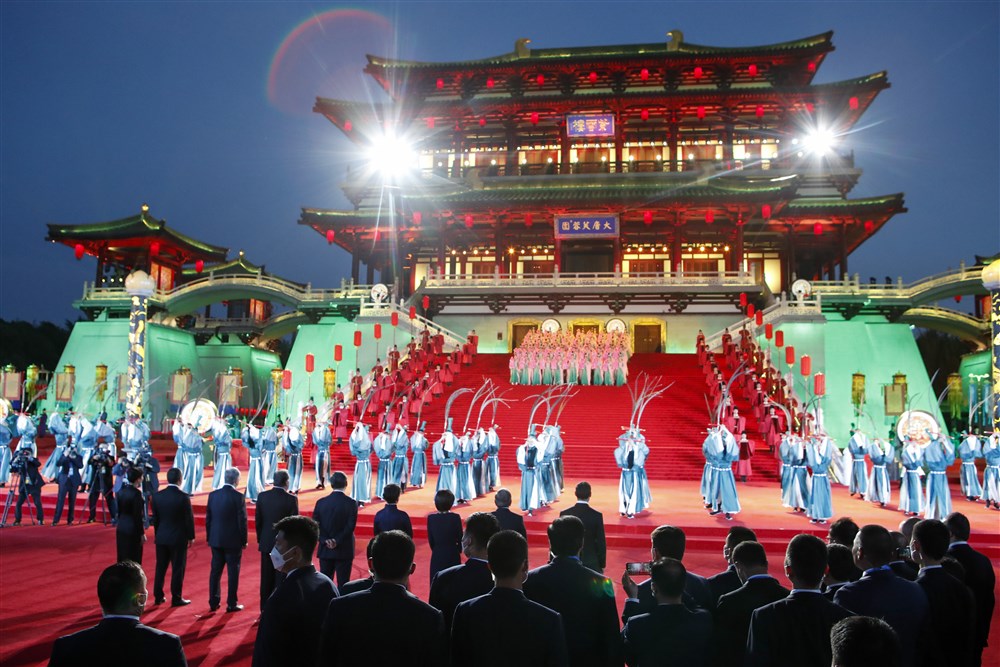
In the run-up to the summit, Chinese state media reported that China is seeking more economic cooperation. “Important documents” in the areas of economy, trade and connectivity will be signed. The summit would pave the way for a “new breakthrough in economic and trade cooperation between China and Central Asian countries.” The Belt and Road Initiative, which has its starting point in Xi’an, is also expected to gain new momentum.
China certainly does not want to wrest the C5 countries away from Russia. That would not be in the interests of the frequently proclaimed “borderless” Sino-Russian friendship. Nonetheless, Beijing is also sending a message to Moscow with the summit in Xi’an. Xi’an’s decision to gather the five former Soviet states without Putin shows that Moscow is increasingly regarded as a junior partner. China wants to be the driving force for stability and prosperity in the region. But Russia also benefits from stability.
Washington, for its part, is little more than an onlooker. The US created its own dialogue format for Central Asia (C5+1) in 2015. But since the inaugural ceremony eight years ago, there has been no further meeting at the foreign minister level. The US hurriedly made up for this in February with a trip to the region by Secretary of State Antony Blinken. However, he did not have much to offer.
May 22, 2023; 9 a.m. CEST (3 p.m. CST)
Fairbank Center for Chinese Studies, Webinar: China’s Clean Energy Engagement in Central Asia More
May 24, 2023; 10 a.m. CEST (4 p.m. CST)
Merics, Webinar: Trends of Chinese Direct Investment in Europe More
May 24, 2023; 2:30 p.m. CST
German Chamber of Commerce in China, Seminar: GCC Knowledge Hub: The “Difficulties” and “Opportunities” in Industrial Transfer More
May 25, 2023; 3:30 p.m.
Swiss Centers Zurich, Seminar: What Opportunities and Challenges for Swiss Companies? & Release of the Swiss Business in China Survey 2023 More
May 26, 2023; 10 a.m. CEST (4 p.m. CST)
Dezan Shira, Webinar: Maximizing Business Growth in East China and Shanghai: Strategies for Success in 2023 More
After the first mediation talks in Kyiv, China dampens hopes for peace in the near future. According to information from Beijing, Chinese special envoy Li Hui has no “panacea for resolving the crisis” between Ukraine and Russia. Li had urged both sides in Kyiv to begin talks. “All parties need to (…) build mutual trust and create conditions to stop the war and talk,” Li said. No other concrete results have been reported for the time being.
Li spent two days in Kyiv and met with Ukrainian Foreign Minister Dmytro Kuleba, among others. The latter stressed that his country would not accept any proposals “that would involve the loss of its territories or the freezing of the conflict.”
The governments of both countries were initially silent on whether Li also met with Ukraine’s President Volodymyr Zelenskiy. It would be the first meeting between Zelenskiy and a high-ranking Chinese representative. Li continued his trip to Poland on Thursday and also plans to visit Germany, France and Russia in the coming days. flee
The Chinese government has criticized several Western embassies in Beijing for raising the Ukrainian flag. The People’s Republic did not explicitly mention the display of the Ukrainian flag by representations of other countries in its letter, but nevertheless clearly expressed its disapproval, four diplomats told the Reuters news agency. One of the diplomats said that his country’s representation, however, does not intend to remove the image of a Ukrainian flag it displayed.
“Do not use the building facilities’ exterior walls to display politicized propaganda,” the Chinese Foreign Ministry said in a letter. The letter is dated May 10 and addresses “all embassies and missions of international organizations in China.”
Among others, Germany, the UK, Poland, the European Union and Canada have expressed solidarity with Ukraine by displaying the blue and yellow flag. Some embassies also display messages of support in English and Chinese. In some cases, the rainbow flag was also displayed on embassy buildings in Beijing to mark Wednesday’s International Day against Homophobia, Biophobia, Interphobia and Transphobia. rtr
Taiwan’s largest opposition party, the Kuomintang, has chosen its candidate for the presidential election in January. The party nominated former Taipei Mayor Hou Yu-ih as its candidate on Wednesday.
The ruling Democratic Progressive Party (DPP) had already nominated incumbent Vice President Lai Ching-te in April. President Tsai Ing-wen is not allowed to run again after two terms in office.
The people of Taiwan are called to the polls on January 13, 2024. This could also impact the complicated relations with China. Since Tsai Ing-wen took office in 2016, the Chinese leadership ceased communication with Taiwan. Previously, the Kuomintang was in power and represented a more China-friendly policy. flee
Daimler Truck boss Martin Daum expressed concern about China’s dominance in battery technology. Daum told Deutsche Presse-Agentur that there is an extremely high level of dependence on China. “Chinese companies already have the patents, the preliminary products and the raw materials,” Daum said. “I think it is always difficult when you are dependent on a single country.”
China supplies 80 percent of the global market, he said. “We, too, will certainly set up our own battery production with partners, albeit a bit later than the passenger car companies,” Daum said. But even with such cooperations, Chinese patents would likely still be involved. And even if the batteries were produced in-house, the preliminary products would still be needed, according to Daum. Daimler Truck plans to sell vehicles with hydrogen-based fuel cell drive systems in the second half of this decade. dpa

Why and how did a boy who had to watch as a child how the despot Mao Zedong politically persecuted his father and exiled him from Beijing, later become himself a Maoist and dictator who oppresses others?
China experts puzzle over such zigzags in the life of current CCP leader Xi Jinping. Was he never filled with rage at how he and his entire family were collectively punished when his wrongfully convicted father, Xi Zhongxun (a close associate of Mao), was overthrown, how they all fell from grace, how one of his sisters committed suicide?
Born in 1953, Xi lost his privileged life overnight when he was a child and became a vagabond, humiliated and imprisoned as a 14-year-old during the wild phase of the Cultural Revolution. In 1969, as part of Mao’s rural deportation of urban youth, he sought refuge in a distant mountain village. There he had to slave away all day, starved, carried sacks weighing tens of kilograms, herded goats and lived in a cave in the Loess Mountains without electricity and plagued by fleas.
Despite all this, he later glorified his ordeal, claiming that he had spent nights in the dim light of a paraffin lamp absorbing the works of world literature and the classics of Marxism. The boy, who was forced to drop out of secondary school because of the Cultural Revolution, read his way through Shakespeare and Goethe, Marx’s magnum opus “Das Kapital.” He made Hamlet’s “To be or not to be” the motto of his rise.
Fiction or truth? Xi often shares many anecdotes from that time, even telling them in other countries; for example, in October 2015, he told the Mayor of London during a state visit to England: “When I was just shy of 16, I left Beijing for a small village in northwestern China to become a peasant for seven years. During that time, I was desperately looking for Shakespeare’s works. As a young man living on the barren yellow farmland, I thought incessantly about the question of to be or not to be. This finally led me to devote my life to the fatherland and the people.”
How Xi, as a literary autodidact, appropriated the cultural literature of China and the world is now part of the grotesque personality cult that the CCP leader has sparked around himself. Every April, on the occasion of the annual “Book Day,” the propaganda publishes a list of all the books by Western Marxist authors, Confucian classics or icons of world literature that Xi supposedly has read. 66 books are on the latest list.
Every New Year’s Eve, when Xi delivers his speech, the TV cameras seemingly casually zoom in on his bookshelves and focus on the new additions of both Chinese and foreign literature and non-fiction. Everything is arranged in advance.
Such over-the-top displays, and Xi’s habit of constantly quoting world literature books and the names of their authors in his essays and speeches, led bloggers to cut clips from dozens of TV news programs and turn Xi’s jumble of words into a slapstick video. They can be found on YouTube. These parody blogs caught the attention of Beijing’s censors, who prosecute and block them in China as “malicious mockery” (恶搞).
The CCP does not take jokes. When Xi tells London’s Mayor how Shakespeare had enlightened him at the age of 16, it is as important as it is serious news for the Central Committee’s theory magazine Qiushi, (whose name literally means: seeking the truth in the facts). To mark this year’s Book Day on 23 April, it published a glowing eulogy of the erudite CCP leader.
It is irrelevant whether Xi interprets Hamlet’s monologue “To be or not to be” as the latter’s desperate cry of existential suffering, or reinterprets it as a systemic question, i.e., whether someone submits to his fate and continues to live (to be), or rebels and risks death (not to be). The Beijing propaganda paper Global Times recently stepped up its literary and cultural glorification of Xi. It combined Xi’s new “Global Civilization Initiative” with his name and turned it into the theory of “Xivilisation”.
In its laudation, the CCP magazine Qiushi wrote that the farmers of the mountain village still remember how the 15-year-old Xi arrived in 1969: “He brought two suitcases packed with books. Comrade Xi read them in the light of a sooty oil lamp in his living cave deep into the night. The paraffin lamp blackened his face and nose.” 习近平同志来插队时,随身只带了两个行李箱,里面装的全是书;还记得习近平同志在窑洞里幽暗的煤油灯下读书至深夜,面孔和鼻子被油烟熏黑.
After Shakespeare’s works, Xi was fascinated by Goethe’s Faust. At least, that’s how he tells it. When he heard that a school friend from Beijing, who was staying in a neighboring village, had brought a translation of Faust with him, Xi, who was 16 at the time, immediately set off on the 30 li (15 kilometer) journey. He borrowed the two volumes and, as he claims, could not put them down. (我看了也是爱不释手). His friend had to nag and remind him three times before Xi returned the books.
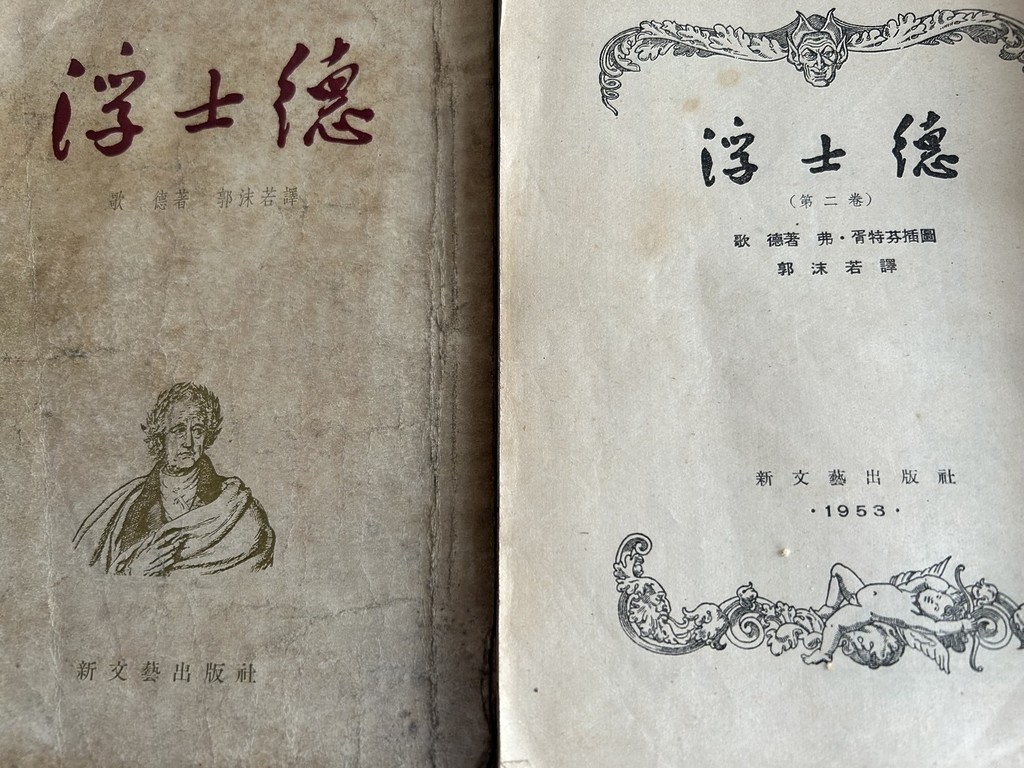
The historian and essayist Edward Luttwak craftily drew his own conclusion as to why Goethe’s Faust fascinated Xi so much. Could it not be that Xi himself made a “Faustian bargain” that a Chinese Mephisto 墨菲斯托 appeared before him in his cave? Was he trading China’s soul for his forthcoming autocracy? Under Xi, the authority of Mao and the Maoist party has been restored in China, after his predecessors had long tried to free the nation from Mao’s grip.
What is certain is that Xi gave the saga of Mephisto a new spin when he visited Goethe’s homeland decades later. At a speech to the Koerber Foundation in Berlin on 28 March 2014, he said: “There are also people who always look at China through colored lenses and see a “threat” in a developing China. They try to label China as a ‘Mephisto’ that could one day rob the world of its soul.”
Back home, Xi was praised for this comparison. The People’s Daily wrote that he had “used the work of Goethe to reject the Western theory of the threat posed by China.” 用歌德作品回应 “中国威胁论.”
During his 2014 visit to Berlin, Xi also told Chancellor Angela Merkel that Goethe’s Faust had made a deep impression on him, and he repeated this later in discussion with eleven German sinologists about matters of cultural exchange. Among them was the founder of the German Goethe-Institut in Beijing, Michael Kahn-Ackermann. He remembers that in 1986 the Shanghai party leader at the time, Jiang Zemin (who later would become China’s party leader), had already told him something similar. Jiang claimed to have read Faust “four times.”
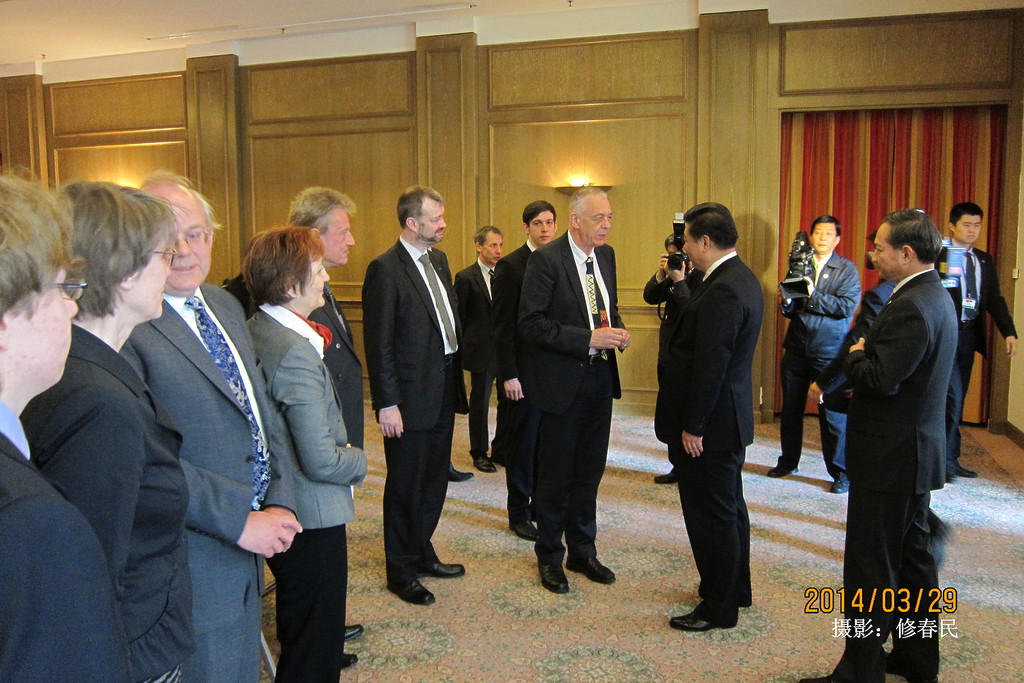
That was not enough; in 2001, he picked up Faust for the fifth time. Jiang was looking for spiritual consolation, he revealed in a public lecture. His bold proposal to open the Communist Party to new members, including patriotic entrepreneurs, made him the target of inner-party opposition. Dogmatists accused Jiang of robbing the CP of its proletarian soul. Distraught, he reached for Faust.
Admiration for Goethe has a unique tradition in China, ever since the country’s cultural elite rebelled in the 1920s and became hooked on Goethe’s “The Sorrows of Young Werther.” Xi, too, had read Werther and already did so at the age of 14, China Daily claimed in its article “A look at what’s on President Xi Jinping’s shelves.”
It took the polymath and later cultural czar under Mao, Guo Moruo (1892-1978), decades to translate Faust. It was not until 1947 that Guo was able to complete Volume 2. In the afterword, he wrote: “Our movement of 4 May 1919 resembled somewhat the Sturm-und-Drang movement of Goethe’s youth; both were historical periods in which society was changing from a feudal to a modern era.” The People’s Republic version of Faust was published by the Shanghai New Literature Publishing House in 1953. Xi also read this edition.
I found both volumes in a Beijing antiquarian bookshop. Guo had translated them from the German edition (Schröter 1924) and adopted the 163 pen drawings by Franz Staffen. His illustrations, for example, of the infernal temptations, are so revealing that the young Xi should be forgiven for trying to keep this copy for as long as possible.
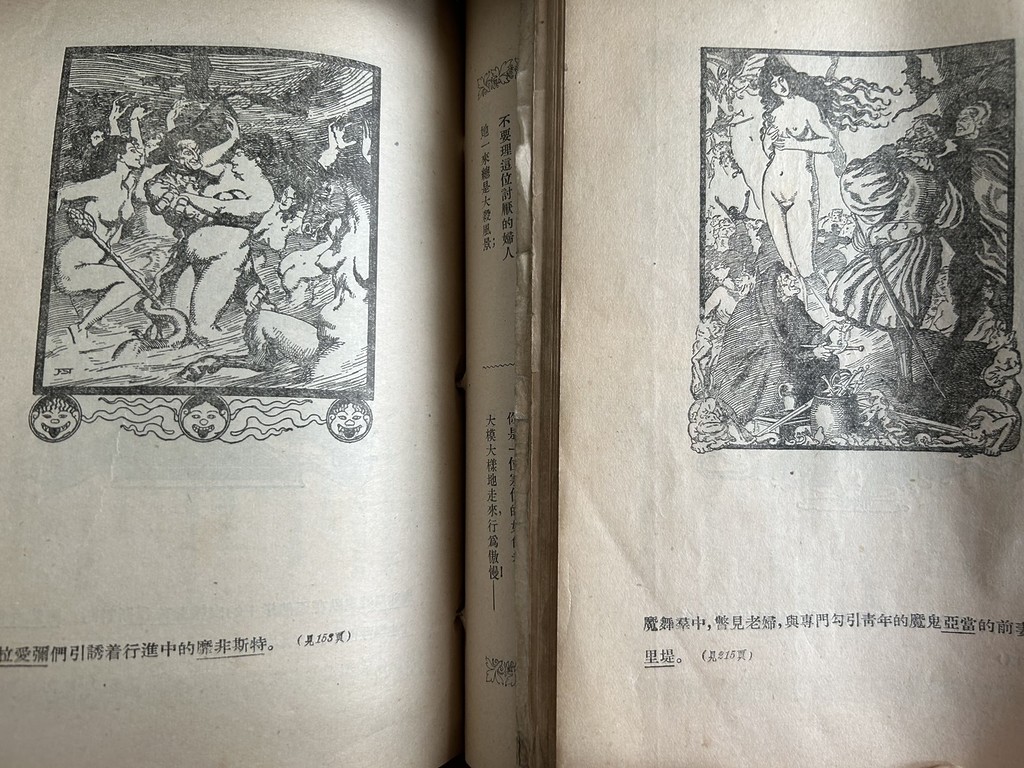
Only Xi knows if he has read Faust in its entirety. As for Marx’s books, there is a reason for doubt, especially since China Daily claims: “He read Das Kapital three times; his reflections on the seminal work filled 18 notebooks.” The CCP magazine Qiushi even claims that Xi not only read the main economic work three times in the dim light of his paraffin lamp, but even compared the different translations, (although Xi does not know a single foreign language): The magazine quotes him as saying: “I liked the translations by Guo Dali and Wang Yanan the most.” 自己下乡时在窑洞的煤油灯下通读过3遍《资本论》,记了很多本笔记,还读过几种不同译本,最喜欢厦大老师郭大力、王亚南的译本.”
Such stories fit the new role of the current CCP leader as its ideological thought leader. He had this claim enshrined in the CCP statutes and China’s constitution. Turning Xi into the nation’s head reader now also fits in with this.
Patrick Zheng Yu Zhao will take over as head of BASF’s new Global Automotive OEM Coatings Solutions division, based in Hong Kong. He previously served as Senior Vice President at Coatings Solutions Asia Pacific.
Roderick Kefferpuetz will become the new Director of the Heinrich Boell Foundation European Union in Brussels. Kefferpuetz was previously a senior analyst at the Mercator Institute for China Studies (MERICS). He is an expert in the fields of geo-economics and EU-China relations.
Is something changing in your organization? Let us know at heads@table.media!
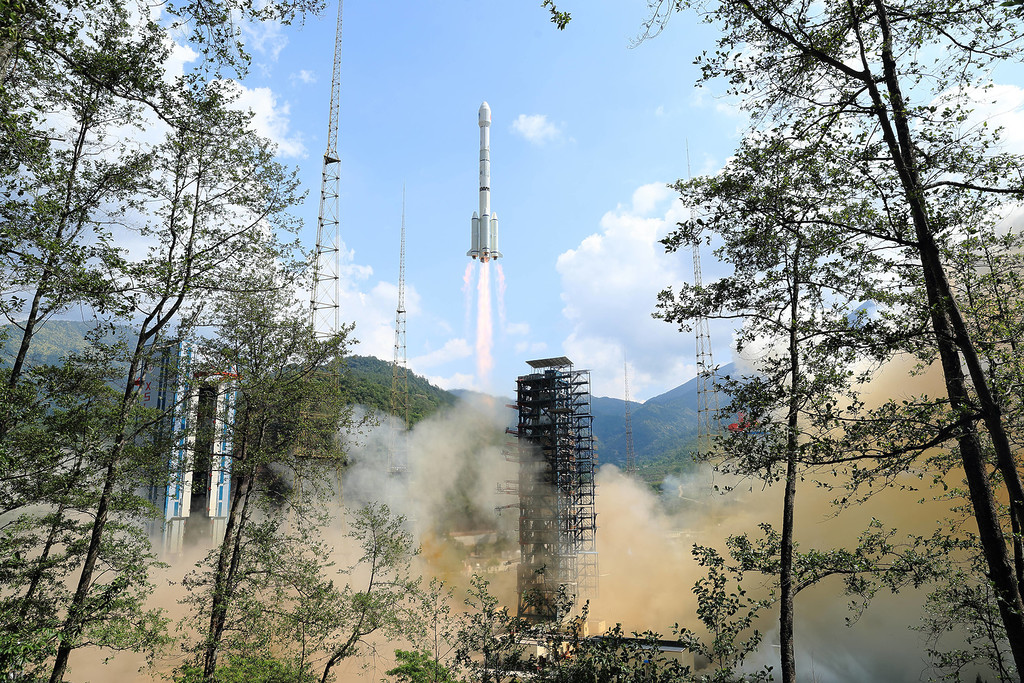
We are used to pictures of rocket launches in the desert. Not so in China. A launch vehicle of the type “Long March 3B” took off on Wednesday from the Xichang satellite launch center in the densely overgrown forests of Sichuan province. On board: a Beidou satellite, the Chinese equivalent of the US GPS system, the European Galileo network or the Russian GLONASS.
The G7 countries have long since lost their position as the leading economic powers. For some time now, India has had more economic power than Italy, Canada, and even the United Kingdom. China is number two, right after the US. When the G7 meet on Friday in Hiroshima, Japan, they will no longer be able to set the agenda in the way they could a few years ago. Instead, they are driven by the issues other powers set for them: Russia and China.
German Chancellor Olaf Scholz and the other G7 heads of government are looking for ways to further increase the sanctions pressure on Moscow to prevent third countries, above all China, from profiting further. In light of the tensions over the Taiwan conflict, another pressing question is how the G7 members can become more independent of China, writes Michael Radunski.
Far more unity, on the other hand, can be found at the summit of the Central Asian states summoned by the Chinese leadership to Xi’an. It is the counter-summit to the G7. However, this meeting is not only aimed against the West, but also sends Moscow a message. China is poaching in Russia’s sphere of influence – and a weakened Putin is forced to watch helplessly, analyzes Joern Petring.


At the G7 summit in Japan, starting today, the Ukraine war will undoubtedly be an important topic. Its global consequences are far too far-reaching, after all. But when Japan’s Prime Minister Fumio Kishida welcomes his G7 colleagues from Germany, France, Great Britain, Italy, Canada and the United States in Hiroshima today, two other concerns will be on his mind: China’s military ambitions and its repeated attempts to enforce its goals through economic coercion.
Since Russia’s attack in February 2022, Kishida has warned that “Ukraine today could be East Asia tomorrow.” The situation surrounding Japan is getting increasingly tense. China is said to be making attempts to unilaterally change the status quo by force. What Kishida means by this is, above all, China’s claims over Taiwan and the South China Sea.
In response, Japan is currently undergoing its own “Zeitenwende”: Tokyo has presented a revised defense strategy, plans to double its defense spending over the next five years, and improve its military counter-attack capabilities – among other things, by purchasing Tomahawk cruise missiles. It is a fundamental turning point for a country that has been officially pacifist since its defeat in World War II.

Japan supports the Western sanctions against Russia. In return, however, Japan must be able to rely on allies and like-minded countries when it comes to risks posed by China, Kishida demanded most recently in Washington.
But this is precisely where the West is divided over lately. While US President Joe Biden put an end to the decades-old American ambiguity and assured Taiwan of America’s military support in the event of a conflict, French President Emmanuel Macron surprised everyone during his visit to Beijing last month by saying that Europe should not allow itself to be “caught up in crises that are not ours.”
Accordingly, the President of the EU Commission tried to provide clarity before the G7 summit. “We will reaffirm our unwavering commitment to peace and stability in the Taiwan Strait,” Ursula von der Leyen said at the start of the week. Japan will work towards a clear statement at the summit.
There is also disagreement on the second issue – China’s economic pressure against other countries. “We have seen attempts of economic coercion – for example, China towards Lithuania. We have seen similar practices vis-à-vis Japan and Australia,” von der Leyen said. Here, too, there is a need to increase “resilience,” in other words, the ability to withstand economic pressure from China. The new magic word is de-risking.
The United States, on the other hand, is taking a much stricter line toward China. In Washington, the pendulum is clearly swinging more toward de-coupling. However, the Biden Administration has recently demonstrated more understanding for Europe’s position. Washington is only slowly realizing how vital close economic relations with China really are for many European countries. The Covid pandemic, for example, has highlighted the dependence of German industry on supplies from China.
Apparently, the G7 in Japan is therefore planning to issue a separate declaration on economic security for the first time, in addition to the final communiqué of the main summit. In it, the participants want to commit themselves to “jointly deterring, responding to and countering economic coercion.” It is unlikely, however, that China will be explicitly mentioned in this declaration.
In any case, Beijing’s reaction to the G7 agenda was one of premature displeasure. “If the G7 Summit is to discuss response to economic coercion, perhaps it should first discuss what the US has done,” said a spokesperson for the Chinese Foreign Ministry.
The background is Washington’s extensive export controls, which the US uses to try and hinder Chinese companies from acquiring cutting-edge technologies and high-performance chips. The US is exerting significant pressure on Western companies, such as the Dutch chip manufacturer ASML to join US sanctions.
China regards the G7’s criticism as “ideology-driven, unjustified, offensive, and excessive,” Wang Zichen told Table.Media. In this way, the G7 is undermining its own claim, according to the researcher from the Center for China and Globalization (CCG) in Beijing. “Beijing increasingly sees G7 as similar to Five Eyes, the QUAD, and AUKUS – small, exclusive ‘circles’ led by the US to contain China.”
Wang warns of potential consequences – for Taiwan, for example. “I think the likelihood of a military conflict in the Taiwan Strait has been exaggerated, which is counterproductive and risks becoming a self-fulfilling prophecy.” Toning down Western concerns and making more constructive remarks would do more to restore confidence in the stability of the Taiwan Strait, Wang urges.
Eberhard Sandschneider also is critical of the G7 summit agenda in Japan. “The G7 are running the risk of getting bogged down in their China criticism,” warns the political scientist. While it is right to name problems, they should not exhaust themselves in them, he added.
Instead, China should also be made offers. “Every speech talks about China as a partner in the fight against climate change,” says the partner of the consulting firm Berlin Global Advisors. However, there have been no concrete joint measures with China to date.

China has rolled out the red carpet in Xi’an for the Central Asian states of Kazakhstan, Kyrgyzstan, Tajikistan, Turkmenistan and Uzbekistan. President Xi Jinping welcomed the leaders of the five former Soviet states to a banquet Thursday to kick off a two-day summit. In the run-up, Xi held a series of talks with his guests. The main day of the summit is Friday.
While the G7 countries are bound to show unity against Russia and China at their meeting in Japan, the Chinese also demonstrate in Xi’an that they will not allow themselves to be isolated. They are forging their own discussion formats in which the West is not calling the shots. They want to create structures that represent an alternative to what the Chinese consider to be the Western-dominated world order.
While the so-called “C+C5” format with the states of Central Asia has already existed since 2021, it is now being held face-to-face for the first time since the end of the pandemic. The timing for the charm offensive in Xi’an could hardly be better for Beijing.
Moscow still plays an important role in the region, but the Central Asian states are increasingly willing to align themselves more closely with China. After all, Beijing can offer what Russia has only been able to provide to a limited extent since the start of the war in Ukraine at the latest: A lucrative economic cooperation.

In the run-up to the summit, Chinese state media reported that China is seeking more economic cooperation. “Important documents” in the areas of economy, trade and connectivity will be signed. The summit would pave the way for a “new breakthrough in economic and trade cooperation between China and Central Asian countries.” The Belt and Road Initiative, which has its starting point in Xi’an, is also expected to gain new momentum.
China certainly does not want to wrest the C5 countries away from Russia. That would not be in the interests of the frequently proclaimed “borderless” Sino-Russian friendship. Nonetheless, Beijing is also sending a message to Moscow with the summit in Xi’an. Xi’an’s decision to gather the five former Soviet states without Putin shows that Moscow is increasingly regarded as a junior partner. China wants to be the driving force for stability and prosperity in the region. But Russia also benefits from stability.
Washington, for its part, is little more than an onlooker. The US created its own dialogue format for Central Asia (C5+1) in 2015. But since the inaugural ceremony eight years ago, there has been no further meeting at the foreign minister level. The US hurriedly made up for this in February with a trip to the region by Secretary of State Antony Blinken. However, he did not have much to offer.
May 22, 2023; 9 a.m. CEST (3 p.m. CST)
Fairbank Center for Chinese Studies, Webinar: China’s Clean Energy Engagement in Central Asia More
May 24, 2023; 10 a.m. CEST (4 p.m. CST)
Merics, Webinar: Trends of Chinese Direct Investment in Europe More
May 24, 2023; 2:30 p.m. CST
German Chamber of Commerce in China, Seminar: GCC Knowledge Hub: The “Difficulties” and “Opportunities” in Industrial Transfer More
May 25, 2023; 3:30 p.m.
Swiss Centers Zurich, Seminar: What Opportunities and Challenges for Swiss Companies? & Release of the Swiss Business in China Survey 2023 More
May 26, 2023; 10 a.m. CEST (4 p.m. CST)
Dezan Shira, Webinar: Maximizing Business Growth in East China and Shanghai: Strategies for Success in 2023 More
After the first mediation talks in Kyiv, China dampens hopes for peace in the near future. According to information from Beijing, Chinese special envoy Li Hui has no “panacea for resolving the crisis” between Ukraine and Russia. Li had urged both sides in Kyiv to begin talks. “All parties need to (…) build mutual trust and create conditions to stop the war and talk,” Li said. No other concrete results have been reported for the time being.
Li spent two days in Kyiv and met with Ukrainian Foreign Minister Dmytro Kuleba, among others. The latter stressed that his country would not accept any proposals “that would involve the loss of its territories or the freezing of the conflict.”
The governments of both countries were initially silent on whether Li also met with Ukraine’s President Volodymyr Zelenskiy. It would be the first meeting between Zelenskiy and a high-ranking Chinese representative. Li continued his trip to Poland on Thursday and also plans to visit Germany, France and Russia in the coming days. flee
The Chinese government has criticized several Western embassies in Beijing for raising the Ukrainian flag. The People’s Republic did not explicitly mention the display of the Ukrainian flag by representations of other countries in its letter, but nevertheless clearly expressed its disapproval, four diplomats told the Reuters news agency. One of the diplomats said that his country’s representation, however, does not intend to remove the image of a Ukrainian flag it displayed.
“Do not use the building facilities’ exterior walls to display politicized propaganda,” the Chinese Foreign Ministry said in a letter. The letter is dated May 10 and addresses “all embassies and missions of international organizations in China.”
Among others, Germany, the UK, Poland, the European Union and Canada have expressed solidarity with Ukraine by displaying the blue and yellow flag. Some embassies also display messages of support in English and Chinese. In some cases, the rainbow flag was also displayed on embassy buildings in Beijing to mark Wednesday’s International Day against Homophobia, Biophobia, Interphobia and Transphobia. rtr
Taiwan’s largest opposition party, the Kuomintang, has chosen its candidate for the presidential election in January. The party nominated former Taipei Mayor Hou Yu-ih as its candidate on Wednesday.
The ruling Democratic Progressive Party (DPP) had already nominated incumbent Vice President Lai Ching-te in April. President Tsai Ing-wen is not allowed to run again after two terms in office.
The people of Taiwan are called to the polls on January 13, 2024. This could also impact the complicated relations with China. Since Tsai Ing-wen took office in 2016, the Chinese leadership ceased communication with Taiwan. Previously, the Kuomintang was in power and represented a more China-friendly policy. flee
Daimler Truck boss Martin Daum expressed concern about China’s dominance in battery technology. Daum told Deutsche Presse-Agentur that there is an extremely high level of dependence on China. “Chinese companies already have the patents, the preliminary products and the raw materials,” Daum said. “I think it is always difficult when you are dependent on a single country.”
China supplies 80 percent of the global market, he said. “We, too, will certainly set up our own battery production with partners, albeit a bit later than the passenger car companies,” Daum said. But even with such cooperations, Chinese patents would likely still be involved. And even if the batteries were produced in-house, the preliminary products would still be needed, according to Daum. Daimler Truck plans to sell vehicles with hydrogen-based fuel cell drive systems in the second half of this decade. dpa

Why and how did a boy who had to watch as a child how the despot Mao Zedong politically persecuted his father and exiled him from Beijing, later become himself a Maoist and dictator who oppresses others?
China experts puzzle over such zigzags in the life of current CCP leader Xi Jinping. Was he never filled with rage at how he and his entire family were collectively punished when his wrongfully convicted father, Xi Zhongxun (a close associate of Mao), was overthrown, how they all fell from grace, how one of his sisters committed suicide?
Born in 1953, Xi lost his privileged life overnight when he was a child and became a vagabond, humiliated and imprisoned as a 14-year-old during the wild phase of the Cultural Revolution. In 1969, as part of Mao’s rural deportation of urban youth, he sought refuge in a distant mountain village. There he had to slave away all day, starved, carried sacks weighing tens of kilograms, herded goats and lived in a cave in the Loess Mountains without electricity and plagued by fleas.
Despite all this, he later glorified his ordeal, claiming that he had spent nights in the dim light of a paraffin lamp absorbing the works of world literature and the classics of Marxism. The boy, who was forced to drop out of secondary school because of the Cultural Revolution, read his way through Shakespeare and Goethe, Marx’s magnum opus “Das Kapital.” He made Hamlet’s “To be or not to be” the motto of his rise.
Fiction or truth? Xi often shares many anecdotes from that time, even telling them in other countries; for example, in October 2015, he told the Mayor of London during a state visit to England: “When I was just shy of 16, I left Beijing for a small village in northwestern China to become a peasant for seven years. During that time, I was desperately looking for Shakespeare’s works. As a young man living on the barren yellow farmland, I thought incessantly about the question of to be or not to be. This finally led me to devote my life to the fatherland and the people.”
How Xi, as a literary autodidact, appropriated the cultural literature of China and the world is now part of the grotesque personality cult that the CCP leader has sparked around himself. Every April, on the occasion of the annual “Book Day,” the propaganda publishes a list of all the books by Western Marxist authors, Confucian classics or icons of world literature that Xi supposedly has read. 66 books are on the latest list.
Every New Year’s Eve, when Xi delivers his speech, the TV cameras seemingly casually zoom in on his bookshelves and focus on the new additions of both Chinese and foreign literature and non-fiction. Everything is arranged in advance.
Such over-the-top displays, and Xi’s habit of constantly quoting world literature books and the names of their authors in his essays and speeches, led bloggers to cut clips from dozens of TV news programs and turn Xi’s jumble of words into a slapstick video. They can be found on YouTube. These parody blogs caught the attention of Beijing’s censors, who prosecute and block them in China as “malicious mockery” (恶搞).
The CCP does not take jokes. When Xi tells London’s Mayor how Shakespeare had enlightened him at the age of 16, it is as important as it is serious news for the Central Committee’s theory magazine Qiushi, (whose name literally means: seeking the truth in the facts). To mark this year’s Book Day on 23 April, it published a glowing eulogy of the erudite CCP leader.
It is irrelevant whether Xi interprets Hamlet’s monologue “To be or not to be” as the latter’s desperate cry of existential suffering, or reinterprets it as a systemic question, i.e., whether someone submits to his fate and continues to live (to be), or rebels and risks death (not to be). The Beijing propaganda paper Global Times recently stepped up its literary and cultural glorification of Xi. It combined Xi’s new “Global Civilization Initiative” with his name and turned it into the theory of “Xivilisation”.
In its laudation, the CCP magazine Qiushi wrote that the farmers of the mountain village still remember how the 15-year-old Xi arrived in 1969: “He brought two suitcases packed with books. Comrade Xi read them in the light of a sooty oil lamp in his living cave deep into the night. The paraffin lamp blackened his face and nose.” 习近平同志来插队时,随身只带了两个行李箱,里面装的全是书;还记得习近平同志在窑洞里幽暗的煤油灯下读书至深夜,面孔和鼻子被油烟熏黑.
After Shakespeare’s works, Xi was fascinated by Goethe’s Faust. At least, that’s how he tells it. When he heard that a school friend from Beijing, who was staying in a neighboring village, had brought a translation of Faust with him, Xi, who was 16 at the time, immediately set off on the 30 li (15 kilometer) journey. He borrowed the two volumes and, as he claims, could not put them down. (我看了也是爱不释手). His friend had to nag and remind him three times before Xi returned the books.

The historian and essayist Edward Luttwak craftily drew his own conclusion as to why Goethe’s Faust fascinated Xi so much. Could it not be that Xi himself made a “Faustian bargain” that a Chinese Mephisto 墨菲斯托 appeared before him in his cave? Was he trading China’s soul for his forthcoming autocracy? Under Xi, the authority of Mao and the Maoist party has been restored in China, after his predecessors had long tried to free the nation from Mao’s grip.
What is certain is that Xi gave the saga of Mephisto a new spin when he visited Goethe’s homeland decades later. At a speech to the Koerber Foundation in Berlin on 28 March 2014, he said: “There are also people who always look at China through colored lenses and see a “threat” in a developing China. They try to label China as a ‘Mephisto’ that could one day rob the world of its soul.”
Back home, Xi was praised for this comparison. The People’s Daily wrote that he had “used the work of Goethe to reject the Western theory of the threat posed by China.” 用歌德作品回应 “中国威胁论.”
During his 2014 visit to Berlin, Xi also told Chancellor Angela Merkel that Goethe’s Faust had made a deep impression on him, and he repeated this later in discussion with eleven German sinologists about matters of cultural exchange. Among them was the founder of the German Goethe-Institut in Beijing, Michael Kahn-Ackermann. He remembers that in 1986 the Shanghai party leader at the time, Jiang Zemin (who later would become China’s party leader), had already told him something similar. Jiang claimed to have read Faust “four times.”

That was not enough; in 2001, he picked up Faust for the fifth time. Jiang was looking for spiritual consolation, he revealed in a public lecture. His bold proposal to open the Communist Party to new members, including patriotic entrepreneurs, made him the target of inner-party opposition. Dogmatists accused Jiang of robbing the CP of its proletarian soul. Distraught, he reached for Faust.
Admiration for Goethe has a unique tradition in China, ever since the country’s cultural elite rebelled in the 1920s and became hooked on Goethe’s “The Sorrows of Young Werther.” Xi, too, had read Werther and already did so at the age of 14, China Daily claimed in its article “A look at what’s on President Xi Jinping’s shelves.”
It took the polymath and later cultural czar under Mao, Guo Moruo (1892-1978), decades to translate Faust. It was not until 1947 that Guo was able to complete Volume 2. In the afterword, he wrote: “Our movement of 4 May 1919 resembled somewhat the Sturm-und-Drang movement of Goethe’s youth; both were historical periods in which society was changing from a feudal to a modern era.” The People’s Republic version of Faust was published by the Shanghai New Literature Publishing House in 1953. Xi also read this edition.
I found both volumes in a Beijing antiquarian bookshop. Guo had translated them from the German edition (Schröter 1924) and adopted the 163 pen drawings by Franz Staffen. His illustrations, for example, of the infernal temptations, are so revealing that the young Xi should be forgiven for trying to keep this copy for as long as possible.

Only Xi knows if he has read Faust in its entirety. As for Marx’s books, there is a reason for doubt, especially since China Daily claims: “He read Das Kapital three times; his reflections on the seminal work filled 18 notebooks.” The CCP magazine Qiushi even claims that Xi not only read the main economic work three times in the dim light of his paraffin lamp, but even compared the different translations, (although Xi does not know a single foreign language): The magazine quotes him as saying: “I liked the translations by Guo Dali and Wang Yanan the most.” 自己下乡时在窑洞的煤油灯下通读过3遍《资本论》,记了很多本笔记,还读过几种不同译本,最喜欢厦大老师郭大力、王亚南的译本.”
Such stories fit the new role of the current CCP leader as its ideological thought leader. He had this claim enshrined in the CCP statutes and China’s constitution. Turning Xi into the nation’s head reader now also fits in with this.
Patrick Zheng Yu Zhao will take over as head of BASF’s new Global Automotive OEM Coatings Solutions division, based in Hong Kong. He previously served as Senior Vice President at Coatings Solutions Asia Pacific.
Roderick Kefferpuetz will become the new Director of the Heinrich Boell Foundation European Union in Brussels. Kefferpuetz was previously a senior analyst at the Mercator Institute for China Studies (MERICS). He is an expert in the fields of geo-economics and EU-China relations.
Is something changing in your organization? Let us know at heads@table.media!

We are used to pictures of rocket launches in the desert. Not so in China. A launch vehicle of the type “Long March 3B” took off on Wednesday from the Xichang satellite launch center in the densely overgrown forests of Sichuan province. On board: a Beidou satellite, the Chinese equivalent of the US GPS system, the European Galileo network or the Russian GLONASS.
